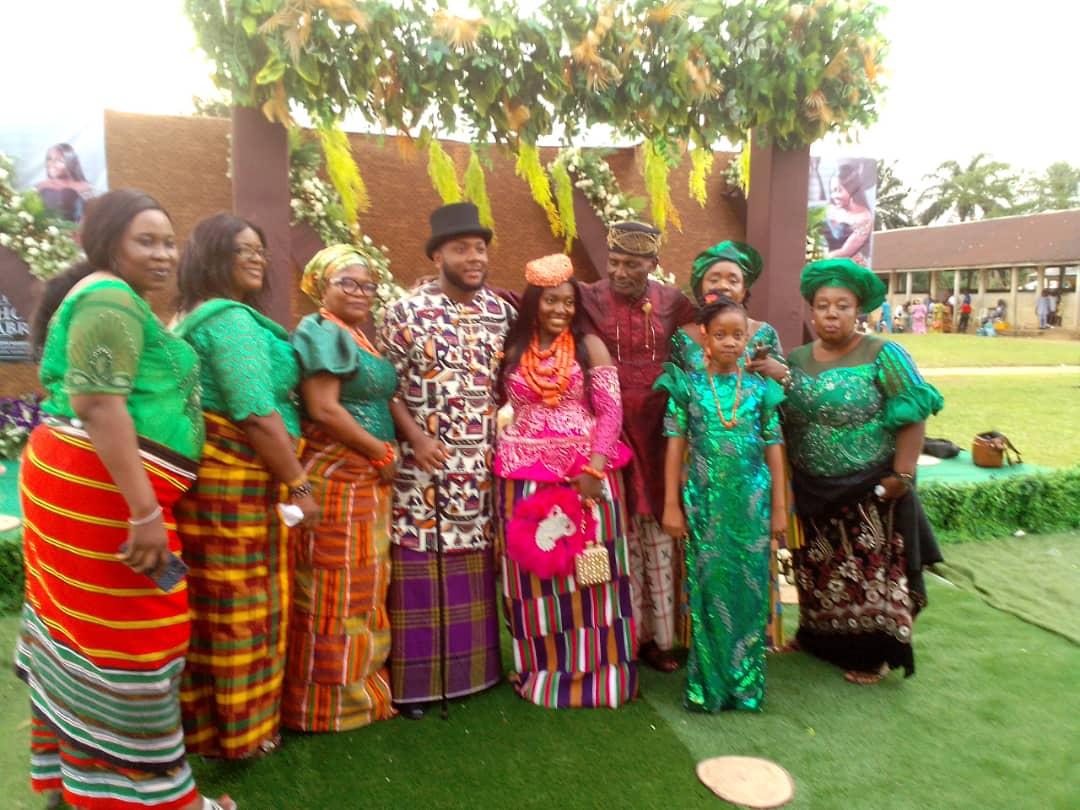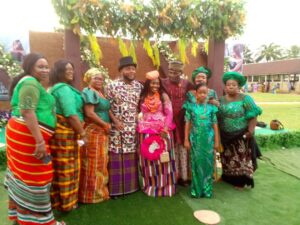Women
Women And Climate Change
Naturally, when climate change occurs, the most affected are women and children. If it has to do with relocation from their original settlements or domains, the fear of “where do we go” comes to mind. They also consider the fact that once they leave where they are, especially to an unknown place, something funny and harmful may affect their lives. This also can cause them a lot of trauma.
Climate Change like flood, has caused a lot of havoc to women whose occupation mostly is farming, fishing inclusive and trading. When flooding occurs, their farms where they get farm produce are affected and even markets where to sell become a problem.
When situations like this occurs, definitely poverty sets in since their source of livelihood becomes affected. When their farms are affected, feeding their families, especially the widows becomes difficult.
Of course when flooding occurs, it goes beyond the normal rivers where some women who are engaged in fishing business get their daily bread. Anybody who engages in daily agricultural business and is being denied that even, per day is bound to run into financial problem.
Cases of flooding which have occured in many parts of Nigeria, especially the coastal regions is unpredictable weather patterns which should be looked into.
During the period, you have less food, decreasing access to safe water. Living conditions become more difficult. In Internally Displaced Camps (IDPs), food and materials donated and distributed are not always enough. In this case, women and girls who need good water for sanitation suffer.
When droughts occur as a result of flood, women have poor harvest.
During evacuation, a lot happen to women and girls who may be observing their “monthly visitor”.
When we talk about climate change, we are not just talking about changing of the weather, it’s consequences on humans, especially on women and children on a daily basis are something anybody cannot joke with. They struggle to survive and recover.
Women suffer more due to inequalities and discrimination because of gender. Discrimination among women and girls tend to multiply when disasters occur as they are forced to succumb to all demands, especially rape.
From the recent flooding in some of the coastal villages in the country, we know that climate change-related crises are already instigating deep, life-altering changes for some of the poorest and most marginalised women and girls in the world.
Increased risk of violence against women and girls. In a camp for displaced people, a girl who was just 15 and her sister 19, lie awake at night listening to any sounds that may alert them to men walking into their makeshift shelter which has no proper doors. Some nights they don’t sleep at all for fear of being attacked.
When one of them was interviewed, it was a new reality. “I feel insecure because we have a very poor shelter. Sometimes, the thieves come in and try to harm us. It’s so scary… the thieves don’t want to take any material things, they want to harm women. So, that’s why they don’t look for our things. They just want to attack women”, she said.
As a result women and girls may be forced to migrate to camps for displaced people where living under temporary tarps or bare plastic sheets can expose them to violence from strangers.
Another girl, who was 14, said she was also forced to move into a camp after her house flooded in a small village in one of the coastal villages.
According to her, “in the night I cannot sleep. There was no door. Just a plastic sheet was above our heads. My mother never slept. She was worried for me and my sister.”
There is increased risk of child marriage. When the floods hit one village two years ago, a girl suddenly had to face the prospect of getting married at the tender age of 14. Her parents were struggling after they lost everything in the floods and they felt that marriage into another family would keep her well-fed and safe.
In her words: “Because of poverty parents marry off their daughters like me at a very early age. I cannot go to school since I got married. Life is tough for girls of young age in the village.”
When a disaster strikes, girls can be more vulnerable to child marriage than usual. In some places they are considered an extra burden in times of crisis.
For poor families who have lost their homes and livelihoods, child marriage can be seen as a ticket out of, or at least, a way to diminish the effects of crippling poverty, whilst also ensuring the perceived security of their daughters from violence.
When floods occur, girls are more likely to miss classes or drop out of school.
In small rural villages, some girls clutched their books tightly as they wade their way through knee-high water to get to school everyday. Sometimes, they miss their first classes even though they love going to school and adore their books.
You discover that after the floods some years, while their parents go out to struggle to make up for the lost period, their workload at home increased. They will start to help their mothers more at home by looking after their younger ones, fetching water and doing the household grocery shop at the local markets.
In times of crises, girls are often forced to drop out of school or miss classes because household chores become a strain with fewer family members available to share the pressures at home. Girls are often enlisted to take care of family members, or to help with domestic chores such as cooking, cleaning or finding water, and school is considered a lower priority in times of need.
Sometimes whole schools are destroyed in a crisis or even closed for long periods of time. A girl was interviewed about her feelings missing school during the period and she said: ” I love to go to school and never miss or not attend… (but) last one month our school was closed because of flood. I felt bad and missed…school so much.”
Increased risk of death and injury are possible
25-year-old girl narrated how difficult survival during the floods is. “My sister was pregnant and she delivered in the middle of water. There was no help and I was with her….pregnant mothers cannot swim this distance and often tend to stay in the house which is more dangerous”, she explained.
Marginalised women and girls, the disabled and the elderly are more vulnerable to death and injury in the face of a natural disaster.
Due to their traditional given roles as caretakers, women and girls often stay back in a disaster to protect their children or adults in their care while men sometimes escape.
Not only that but deeply ingrained social norms sometimes dictate that women and girls sometimes have to wait on permission from the men in the household to leave their houses. In some places, women are also often unable to escape when caught by sudden floods or other disasters as they are not encouraged to learn to swim.
It effects on the availability of food and chances of earning a living is worrisome.
Imagine that you live in a pastoral or farming community and the food you eat every day comes from the crops you grow daily or the livestock you rear for milk, meat or for selling in return for cash.
Now imagine the same land you rely on slowly dries out or gets inundated with water and destroys a season’s worth of crops.
This is the reality facing many young women, from the coastal villages. A 20-year-old mother, Abigail was part of a pastoralist family that owned several animals which they reared for their food and income.
Years of climate change-related drought, dried out her land and killed off all the livestock, leaving her family without any food or money to survive. At the same time, her husband took her children and abandoned her.
In her words: Our life was so good because we had our livestock. We used to eat, drink milk, sell [the animals], make butter… it’s so painful when you have a small baby and you have nothing.”
In many rural communities, men control the income in their households. Women who rely on men for economic support are left struggling in times of crisis when men either abandon their families, or leave to look for work elsewhere or are even killed by natural disasters.
Women in rural communities have limited access to and ownership of their land as well which directly impacts the food they have available to eat.
“We lost our crops. Our small goat died in the flood water. Cows are sick. My children suffered a lot during flood. Now we have no crop in our storage. I, along (with) my husband have to work in people’s fields to bring food (to) our table. Life is becoming harder every year after floods”, she said.
Government at every level should support and provide women and girls around the world with food, water, survival kits and safe toilets so that they can survive the climate change affecting their lives when they occur.
Efforts should be made by relevant authorities to ensure that women and girls are safe in IDP camps and adequate arrangements should be made before evacuation.
By: Eunice Choko-Kayode
Women
The Desire Of Every Woman In Marriage

A woman needs a man that is honest, trustworthy, nice, loving and financially stable.
There are no two ways about finance in marriage. No matter the level of love, If there is no money, it is always difficult.

Referring to the Biblical belief in Genesis 3:Your desire shall be unto you……..
That is one aspect the woman expects her husband to take care of.
A woman wants a husband that is not lazy, at least helping to do one or two things. A man that is educated and intelligent.
She knows that there is a trait that her husband has. Traits of taking care of people, giving freely to people and caring for her family.
A woman wants to love a husband that has family interest at heart. A man that spends time with his family, remembering his family even as he is away from home.
A woman should not antagonise her husband because of one error or the other. No matter the level of offence he may have committed, you still show some love.

According to the Scripture, it is with wisdom that the women builds her home.
It is not as if the woman will not monitor her husband, but to certain limit. Don’t be a monitoring spirit. Don’t allow anything to take your joy.
Don’t loose trust in your husband.
The idea of checking your husband’s phone should be discouraged. The more you check your husband and his phone, the more you loose your joy.

The home should not be a battle ground for a woman and man. A woman should be able to ask herself if the check on her husband will pay her any good.
Draw a line to a point where you checkmate your husband’s activities.
A woman wants a man that will love her and telling her you love her will be all she desires.
Eunice Choko-Kayode
Women
What Women Want In Yet-To -Be Husbands
What women want in their yet-to- be husbands matters a lot as far as marriage is concerned.
A woman desires a good fnancial prospect. Interestingly, some modern women place a man’s financial potential as more desirable than they have in the past.
Many decades ago, women ranked it lower on the list. It still comes in after items like love and maturity, but perhaps today’s women realise that a good economic partner is good husband material.
Good health has been an important characteristic for women through the 20th century and remains so these days. One might argue that because we’re living even longer, health plays a huge role in the success of a marriage. Women are anxious to know that their partners are healthy to be able to run the family together.
You discover that in most faith based organisations, would- be couples are mandated to go for medical tests to ascertain their health status as it concerns HIV/AIDS, Genotype and other related ones. This according to stakeholders is to ensure that couples raise healthy families.
Ambition has become less important to women over time, though it still being considered even if women nowadays are thriving in the workforce competing with the male folk. It may be because more women are thriving in the workforce, they want a husband who has earning power but are not looking for him to be the sole provider.
More women want husbands with pleasing disposition. They may not want a man who is always moody. A man who is always cheerful is whom they desire.
Surprisingly, a man’s likes do not rank as high on women’s list of wants as it used to. Until recently, women are more willing to accept a man for who he his, despite the inevitable mood he may be.
Sociability from both men and women rank very high on their marriag material list. And for both sexes, it has been steadily moving up the list for many years. The rise of the “love marriage,” a partnership based on attraction rather than practicalities (like wealth or status) might mean that married couples are more likely to be friends and have mutual circles of friends.
A lot of couples want to associate with others and then socialise. Attending parties of other friends forms part of their marriage requirements.
Women have placed education and intelligence top making it one of their most desirable male traits for decades. This timeline coincides with more and more women receiving college education themselves. Once education becomes important in women’s lives, it is a more attractive trait in potential husbands.
Of course when a woman is educated, she is likely to go for an educated man. When they are gainfully employed, their income boost the family affairs faster.
Today, women are much more attracted to men who are interested in home and family than they ever have been. Men who have desire for their home and children is whom they desire.
After a days job, a man will come home to ensure that his children are comfortable. Because most women today are expecting to be in dual-earner relationships, they want husbands who will be happy and willing to contribute at home. More women today even report that they hope he will take the lead at home.
A woman wants a man who is emotionally stable and mature. Growing big physically is not the issue but maturity in the heart.
Men, too, place a heavy emphasis on a potential wife’s emotional maturity, signaling that it is a key quality for a stable partnership. Women seem to look past appearance to the heart of the matter.
A woman wants a man who is not easily provoked. Dependable character is what some women want in marriage.
Women want husbands that they can count on, and this has not changed in recent years. Yes, women look to their spouses to be lovers and friends, they also want them to be supportive and trustworthy. They want to know that their husbands will be there and remain loyal. Men, too, desire dependable character from their yet-to be wives.
Mutual attraction and love from the first appearance is what they want till they become old.
The highest-rated characteristic women seek from men is mutual attraction and love. Some no longer look for a man who will provide everything, afterall they are also educated and are gainfully employed, they want to be in love.
For some women, even when the man do not provide household needs, the love shown on her is enough. When women had no job prospects and needed to marry, they desired love . The women’s movement has not only helped women pursue careers, it has also given them more choice in love.
Women
Echoes Of IWD : Need To Invest In Women
As this year’s Internatinal Women’s Day (IWD) has come and gone, there are calls from different quarters on the need to invest in women so that we can achieve accelerated growth.
It was, indeed, a thing of joy when Rivers Women Unite For Sim, took delivery of large quantities of sanitary towels and some bags of rice provided them for this year’s celebration.
Many young women expressed joy that they got such gesture since some of them have financial problems getting sanitary towels whenever they are on.
Some secondary school students were also lucky to have a share of the benefits. They also got some sanitary towels.
The Rivers State Commissioner for Women Affairs organised a platform to celebrate and honour the women for the remarkable jobs they perform in their homes and society.
Addressing women on the occasion, the Hon. Commissioner for Women Affairs, Dr. Roseline Apawari Uranta, noted that women from time immemorial have been great pillars in achieving remarkable heights and stressed that IWD across the globe is pivotal all women for the roles they play in bringing, nurturing and sustaining life.
Dr. Uranta said that IWD, which started in 1911 and celebrated annually on March 8, is a global day that provides women a platform to address economic inclusion, participation in political and public life.
She said the day was set aside to look into lack of access to education for the girl-child, gender-based violence, child marriage, child trafficking, harmful cultural practices as well as other challenges facing women around the globe.
The Hon. Commissioner, who described March 8 as a day to celebrate the socio-economic, cultural and political achievements of women, emphasised that it is a day that offers women the opportunity to reflect on progressive achievements.
Noting that it is an opportunity to call for change, she stressed that it is also an opportunity to celebrate acts of courage and every achievement made by ordinary women who did extraordinary things and are remembered in history.
She noted that the IWD2024 theme:”Invest In Women, Accelerate Progress”, is timely and apt because according to her, to achieve gender equality, we must ensure that the rights, responsibilities and opportunities of women do not elude them.
Her words: ” We must see investing in women as a human right issue and consider investing in women as a social tool to eradicate poverty since women are helpmeet in the homes while a handful are breadwinners in their respective families”.
The commissioner urged women to uphold the deliberate act of investing in themselves, be it furthering formal education, developing a new skill as well as learning a trade.
“Shun idleness, always find something positive and productive to do, regardless of your age, social status and financial capabilities”, she said.
In a paper presentation, Dr. Dabota God’swill Jumbo, reiterated that investing in women would attract good and positive dividends to herself and the society at large and noted that it is essential in addressing poverty, hunger and climate change.
The guest speaker said women need more opportunities in elective and appointive positions, hence the need to encourage and support them in politics.
According to her, when you invest in women, they will be able to create safer environment devoid of gender-based violence.
In a goodwill message, the spokesperson, Rivers Women Unite For Sim, Mrs Charity Deemua appreciated the organisers for making it possible for women to gather and celebrate themselves.
She commended those who created a day like March 8 of every year to celebrate women and regretted that the girl-child was seen as a second-class person decades ago.
The former commissioner, Rivers State House of Assembly Commission, described those who taught it wise for women to celebrate as conquerors, tough and strong.
International Association of World Peace Advocates, a world-class organisation with the United Nations, honoured different categories of women.
In Cross River State, 150 women were empowered with about N15m to boost their small and medium scale businesses.
According to stakeholders, the women empowerment is vital in addressing social, economic and political challenges and will make them self-reliant.
An NGO, Association of Professional Women Engineering Technologists (APWET), said it’s aim is to promote professional excellence among engineering personnel, advocating for women and girl-child education.
With what we saw in terms of response to women’s call on issues affecting them from relevant authorities, we are optimistic that the women will do better whenever they are empowered.
If we must kick out cervical, breast and other forms of cancer in women, underage marriage, prostitution, we must invest in women.
There were goodwill messages from National Council for Women Societies (NCWS), International Federation of Female Lawyers (FIDA), Medical Women Association of Nigeria (MWAN), Nigeria Copyright Commission (NCC, Nigeria Association of Female Journalists (NAWOJ), among others.
By: Eunice Choko-Kayode
-

 News2 days ago
News2 days agoWe Operate Transparent Accounting System
-

 Business2 days ago
Business2 days agoCustoms Backs Locally-Made Vehicles
-

 News2 days ago
News2 days agoFleeing Villagers Storm Zamfara Government HouseTo Seek Protection
-

 News2 days ago
News2 days agoEx-Senate President Donates School, Healthcare Centre To Yobe Govt
-

 Niger Delta2 days ago
Niger Delta2 days agoIndorama Denies Alleged Environmental Pollution
-

 News2 days ago
News2 days agoFAAC: FG, States, LGs Share N1.123trn
-

 Business2 days ago
Business2 days agoNCDMB Rakes In $1m Return On NEDOGAS Investment
-

 News2 days ago
News2 days agoITF Expends N1.1bn On SIWES Allowances-DG

